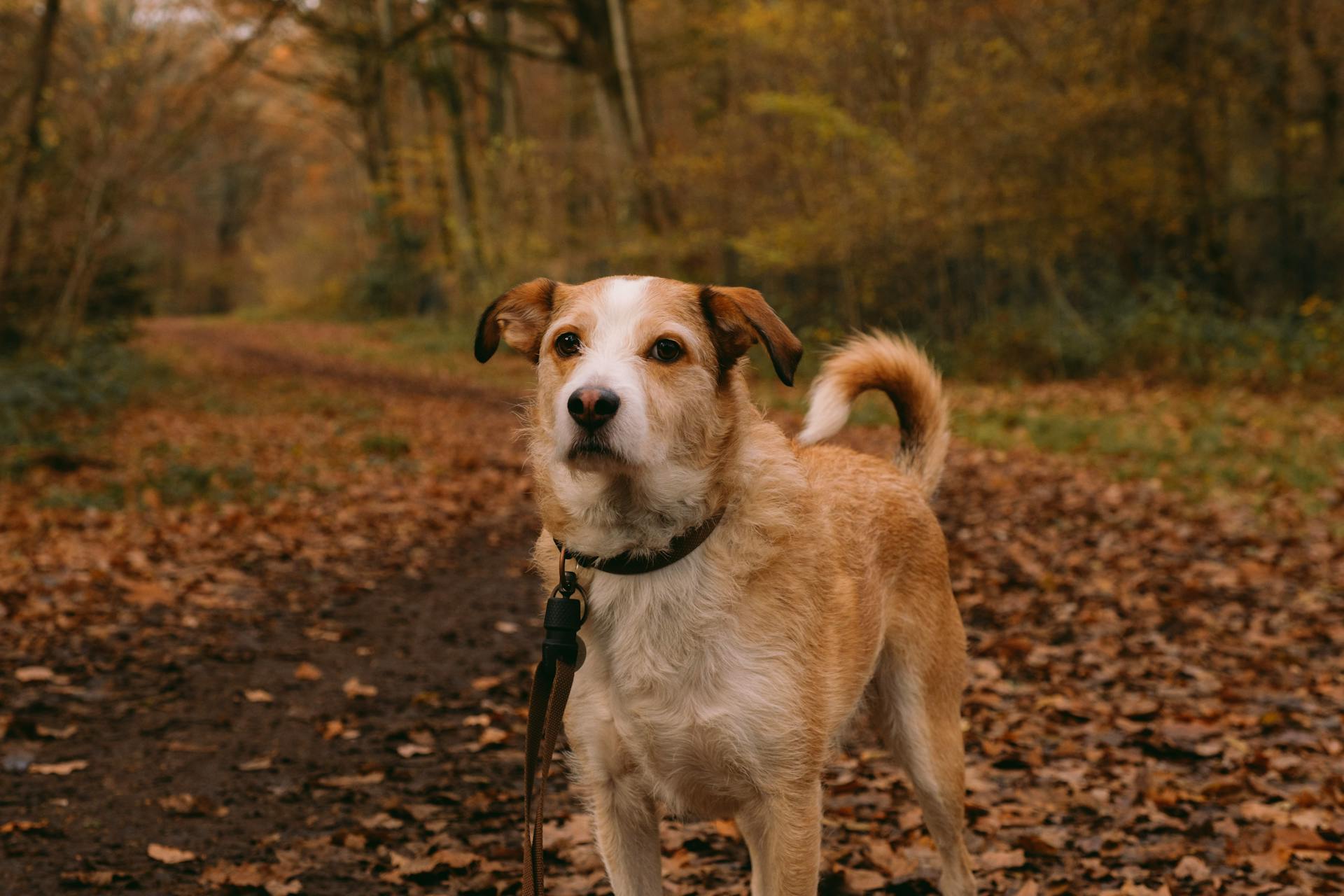
Have you ever been relaxing with your furry friend, only to hear their stomach making strange noises? Don't worry, dog stomach noises are quite common and usually harmless. It simply means that their digestive system is working hard.
These rumbling sounds happen when there's gas or fluid moving through your dog's intestines. Sometimes, the noise happens because their stomach is empty occasionally. Other times, it could be due to a big meal they just had. However, if you notice that your dog's stomach is constantly making weird noises or if they seem to have an upset stomach, then there may be a problem.
Here's where things get tricky - dog stomach noises can indicate a variety of issues such as indigestion, parasites or even cancer. If you notice any other symptoms like vomiting or diarrhea or your dog seems lethargic and not themselves, then it's time to seek veterinary care. In this article, we'll dive deeper into why dogs' stomachs make noises and what you should do if you suspect something more serious might be going on.
Discover more: Dogs Stomach Making Noises and Eating Grass
Why do Dogs Stomach Make Weird Noises?

You may have noticed your dog's stomach grumbling, growling or gurgling, and wondered why they make such noises. Rest assured, these sounds are a normal part of the digestion process called peristalsis! Peristalsis occurs when the smooth muscles in the gastrointestinal (GI) tract contract in rhythmic waves to move food from the stomach through the small and large intestines.
The GI tract includes the stomach, small intestines, and large intestines. As peristaltic movement happens, gas and liquid move through the digestive tract, making what is called borborygmi. This is similar to how water moving through a hollow pipe creates sound. So when you hear your dog's stomach grumblings, it's simply due to peristalsis doing its job!
While normal stomach noises occur after dogs have eaten, if you notice excessive or sudden changes in their stomach noises or behaviors like vomiting or diarrhea develop alongside them, it can be a sign of gastrointestinal disturbance or other health concerns. It's always best to consult with a veterinarian if you're concerned about your dog's health.
For more insights, see: Will Hawks Attack Small Dogs
Why Your Dog's Tummy Rumbling May Need a Vet's Attention
Stomach noises are not uncommon in dogs. In fact, you may have heard your pet's stomach rumbling after a meal or when they're hungry. While not always a cause for concern, persistent stomach noises could indicate an underlying issue that needs veterinary attention.
If you notice any abnormal amount of stomach noises, watch your pet closely for other clinical signs such as vomiting, diarrhea or abdominal pain. If any of these symptoms persist for 24-48 hours or more, it's time to call the vet. Severe diarrhea lasting more than a day can quickly lead to dehydration and other health complications.
Don't hesitate to seek professional help if you're hearing stomach noises that seem out of the ordinary. Your dog may be suffering from an underlying digestive condition that requires medical intervention. It's always better to err on the side of caution when it comes to your furry friend's health and wellbeing.
On a similar theme: Alternative Food for Dogs Instead of Dog Food
Why Does My Pup's Tummy Growl? Uncommon Culprits to Consider
Dog owners are no strangers to the sound of their pup's tummy growling. While there are significant reasons why your dog's stomach noises include hunger, eating grass, or feeling sick, sometimes the cause is more severe. Common illnesses that can cause intestinal movement and stomach noises include inflammatory bowel disease (IBD), hormonal diseases, intestinal parasites, and even intestinal cancer.
Gastrointestinal blockage caused by foreign bodies like bones or toys can also lead to stomach noises. Hemorrhagic gastroenteritis (HGE) and gastric dilatation-volvulus (GDV) are two critical conditions that require immediate veterinary care. HGE causes vomiting and diarrhea with blood in the stool, while GDV affects large breeds and causes bloating and twisting of the stomach.
Contrary to popular belief, dogs don't eat grass because they have an upset stomach or need to vomit. Instead, some dogs may eat grass out of boredom or enjoy the taste. However, if your dog is frequently eating grass, it could be a sign of unmet nutritional needs or even a toxic substance in their diet. If you're ever concerned about your pup's tummy growling or eating habits, it's best to consult with your veterinarian for proper diagnosis and treatment.
On a similar theme: Why Is My Dogs Stomach Making Noises and Not Eating
Do Your Furry Family Member's Tummy Sounds Cause Discomfort?
Loud intestinal noises coming from a dog's stomach may be alarming to pet owners, but they are often harmless. Circumstances surrounding the noise can give insight into the cause of the sound. Dogs stomach making noises hunger pangs or as a response to an empty stomach is common.
However, regular loud borborygmi accompanied by poor appetite can indicate a chronic intestinal disorder such as inflammatory bowel disease, parasites, or other medical issues. If your dog experiences loud intestinal noises on a regular basis and shows signs of discomfort or poor appetite, it's important to have your vet confirm if there is an underlying issue causing the noise.
Most dogs experience loud intestinal noises at some point in their lives and feel fine afterwards. But for those who produce loud intestinal noises regularly or experience downright agonizing painful borborygmi, it's important to seek veterinary care to ensure that there isn't something more serious going on. Don't be afraid to speak up about dogs stomach noises during your next vet visit; catch any issues early on so that you can keep your furry family member healthy and comfortable.
Worth a look: Noise Phobia in Dogs
1. Read Next: Can You Give a Dog Imodium, Kaopectate or Pepto-Bismol for His Upset Stomach?
If your dog has an upset stomach, you may be wondering if you can give them Imodium, Kaopectate or Pepto-Bismol. While these human medications may seem like a quick fix, it's important to remember that dogs have different digestive systems and metabolisms than humans. It's always best to consult with a vet before administering any medication to your furry friend. Taking care of our pets' health is one of the most common health issues pet owners face, but seeking good advice from a professional should always be the first step in proper health care.
2. 78 thoughts on “Why Is My Dog’s Stomach Making Noises? A Vet Weighs In”
Dog stomach noises can be caused by a variety of factors such as diet changes, teeth cleaning, and bacterial infections. Some dogs may experience abnormally loud stomach gurgling due to regular or diet food, while others may need special dry vet prescribed food or an expensive probiotic called FortiFlora. Regardless of the pattern that you are hearing, if your dog's stomach makes loud gurgling noises consistently for more than 2 weeks or they have other symptoms like mucousy stool or diarrhea, it's best to take them to the vet to rule out any serious issues.
Worth a look: Pancreatitis in Dogs Gurgling Stomach
3. Leave a Comment
Leave a Comment:
Have you ever wondered why your dog's stomach is making weird noises? Well, you're not alone. Most dog owners have experienced this at some point. But don't worry, it's usually nothing to be concerned about. However, if you notice any other symptoms or changes in behavior, it's always best to consult with your vet. And while you're here, make sure to leave a comment and enter your email address to stay informed about exclusive deals and new articles! Remember, all published required fields must be completed before submitting your comment.
What Does It Mean When a Dog’s Stomach Is Making a Lot of Noise?
If you’ve ever heard your dog’s stomach making loud and unusual noises, you might be wondering if it’s normal. In most cases, dog stomach noises are completely normal and just indicate that their digestive tract is doing its job by moving food through their system. However, there are times when these stomach noises can be abnormal and may require veterinary attention.
When your dog’s stomach is making a lot of noise, it usually means that the muscles in their digestive tract are contracting to move food along. But sometimes, these contractions can become more intense or frequent than usual, resulting in loud and abnormal stomach noises. This could be due to something as simple as hunger or anxiety, but it could also indicate a more serious issue like an obstruction in the digestive tract or an infection. If your dog’s stomach noises seem excessive or accompanied by other symptoms like vomiting or diarrhea, it’s best to consult with your veterinarian to rule out any underlying health problems.
Frequently Asked Questions
Why does my dog's stomach growl?
Your dog's stomach growls due to the movement of gas and fluids in their gastrointestinal tract, which is a normal bodily function. It can also occur when your dog is hungry or has eaten something that doesn't agree with their system.
Why is my dog's tummy rumbling?
A dog's tummy may rumble due to hunger, digestion, or gas. If it persists or is accompanied by vomiting or diarrhea, consult a veterinarian.
Why does my dog's stomach make loud noises?
Your dog's stomach might make loud noises due to gas, digestion, hunger or an underlying medical condition. It's important to monitor your dog's behavior and consult with a veterinarian if you're concerned.
Why does my dog make noises when he eats?
Dogs make noises when they eat because of the way they are built. The sound is caused by a combination of their anatomy and the way they eat, which can result in air being sucked into their stomach along with the food.
Are stomach noises in dogs normal?
Yes, stomach noises in dogs are normal and usually indicate digestion or hunger. However, if accompanied by other symptoms such as vomiting or diarrhea, it may be a sign of an underlying health issue and should be checked by a veterinarian.
Featured Images: pexels.com


